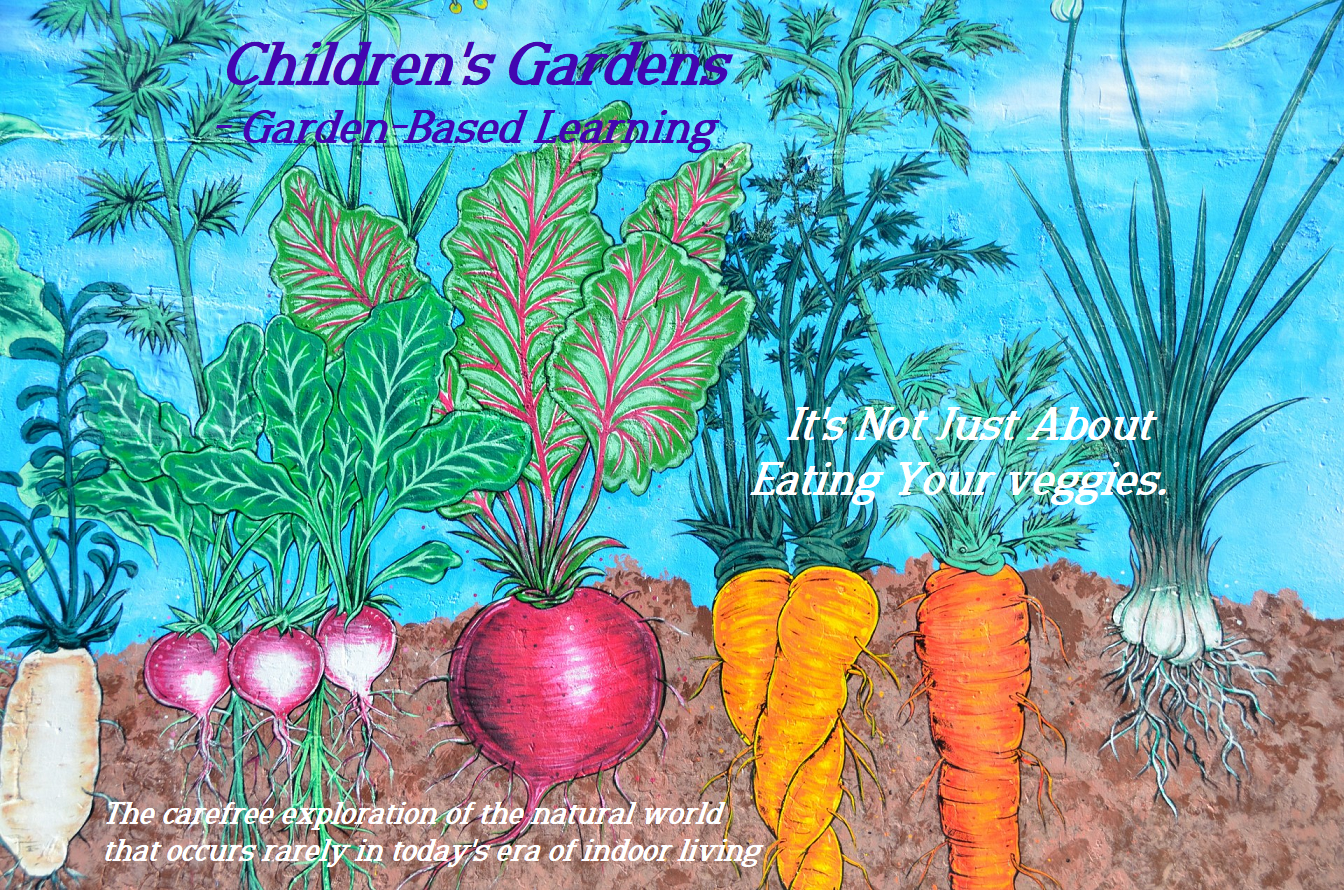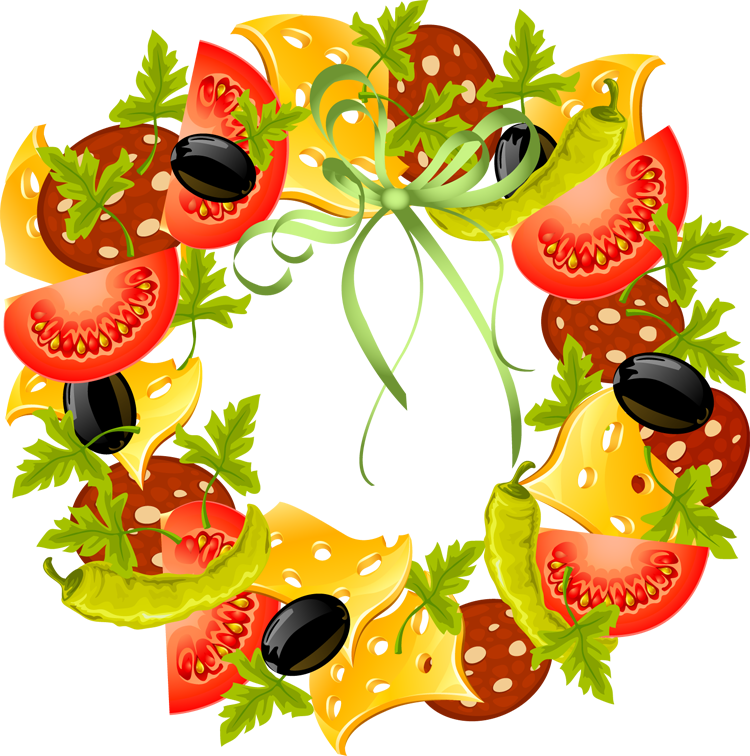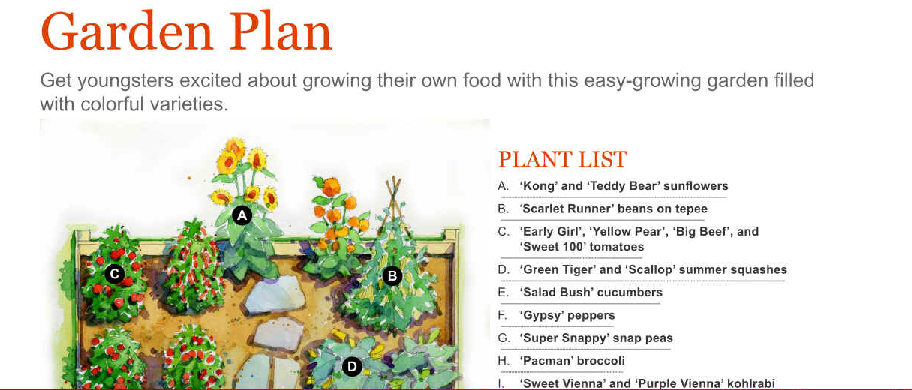 |
|||||||||||||||||||||
|
Graphic created
from a public photo of a mural. Nature's Classroom "I believe that love of Nature, curiosity, and a need for knowing how and why, are born in the soul of a child." ~ Me.
Garden-based learning is an instructional strategy that utilizes the
garden as a teaching tool.
The practice of garden-based learning is a growing global phenomenon, largely seen in the United States, the United Kingdom and Australia. As of 2010, the National Gardening Association reported over 3,000 school gardens in the United States alone. In some settings, garden-based learning strategies are used entirely as the educational curriculum for multiple subjects and in others, it supports or enriches the curriculum. Garden-based learning can contribute to all aspects of basic education on varying levels, depending upon the student and consistency of the garden-based learning program. Aspects of basic education benefits
include but are not limited to academic skills, personal development,
social development, moral development, vocational and/or subsistence
skills, and life skills. These environments can foster science literacy and social skills, while enhancing an awareness of the link between plants in the landscape and our food, clothing, shelter, and well-being. Gardening projects provide children and youth with the carefree exploration of the natural world that occurs rarely in today's era of indoor living; it can also give young people the chance to develop a wide range of academic and social skills. Noted benefits of garden-based learning programs among youth include increased nutrition awareness, environmental awareness, higher learning achievements, and increased life skills. Increased nutrition awareness
Research indicates that youth who participate in garden-based learning programs increase their consumption of fresh fruits and vegetables, and gain new enthusiasm for fresh, nutritious vegetables they grow. It is the physical act of having the students' plant their own fruits and vegetables that gives them ownership and gets them more involved in their learning. Students can then learn about the nutritional values of food and multiple ways to prepare their own products in healthy ways to further progress their awareness of health issues. These two examples of physical acts of learning are what motivate healthier eating choices in and outside of the school setting. Student HealthTeachers also regarded the garden as being very effective in enhancing academic performance, physical activity, language arts, and healthy eating habits. Garden-based learning attempts to combat obesity by introducing students to healthy foods and providing opportunities to for outside experiential learning. Gardening intervention in schools may also aid in the improved health of children for the simple reason that students get 20% or more of their daily food intake from school depending on their socio-economic backgrounds; families with lower income depending on school lunch even more than others. Students and teachers have also
reported that using GBL programs reduce stress. Increased environmental awarenessResearch highlights that high school students gain more positive attitudes about environmental issues after participating in a school garden program. Gardening has also been shown to increase scores on environmental attitude surveys of elementary school children. Environmental awareness and attitudes toward the environment is also seen to improve, especially in urban schools where the garden-based learning programs in the schools may be some of the only times these students can connect with the outdoors away from city streets. Higher Learning AchievementStudies indicate that students who participated in school gardening activities scored significantly higher on science achievement tests compared to students that did not experience any garden-based learning activities. Other research has indicated that weekly use of gardening activities and related classroom activities help improve science achievement test scores. The reasoning behind these improvements is connected to the holistic, integrated, hands-on, project based, cooperative and experiential learning activities that are all aspects of garden-based education. In other words, student engagement in class is increased because they are being intrinsically motivated by "real world" experiences in a more informal setting than the classroom. However, it is important to note the extent to which students improve varies because every student learns differently, and has preferred learning styles that work best for them. Increased Life SkillsResearch has highlighted the
many improvements in life skills that can be attributed to children's
garden programs. Increased Education for the DisabledResearch has shown that
Garden-based learning can help improve important aspects of learning for
people with special needs. Keys to successful garden-based learning programsStudies have shown that children benefit from garden-based learning programs. These benefits could include leadership growth, community involvement, and voluntary education which can lead to increased child development. Researched programs are more effective when one is to work through the entire process to understand how everything works and in what order. Features of garden-based learning programs that develop positive qualities in youth
Benefits of Garden-based learningBasic education usesAcademic Skills
Personal Development (Mental and Physical)
Social & Moral Development
Life Skills
Beyond basic education uses
Vocational and/or Subsistence Skills
Besides basic education uses, the gardens can be used for other worthwhile purposes. Community Development
Food Security
Sustainable Development
Vocational Education
School Grounds Greening
Teachers, Mentors and Community Leaders: Here
are some excellent resources Click
here to download
.pdf Easy Home Vegetable Garden For Kids Click
the pic below to downnload an easy children's vegetable garden in .pdf
format.
Recommended Reading Garden and Nature Based Learning in School and At Home Quick Links
Content,
photos, graphics and designs©2020 Mary's Bloomers This site uses Watermarkly
Software |










